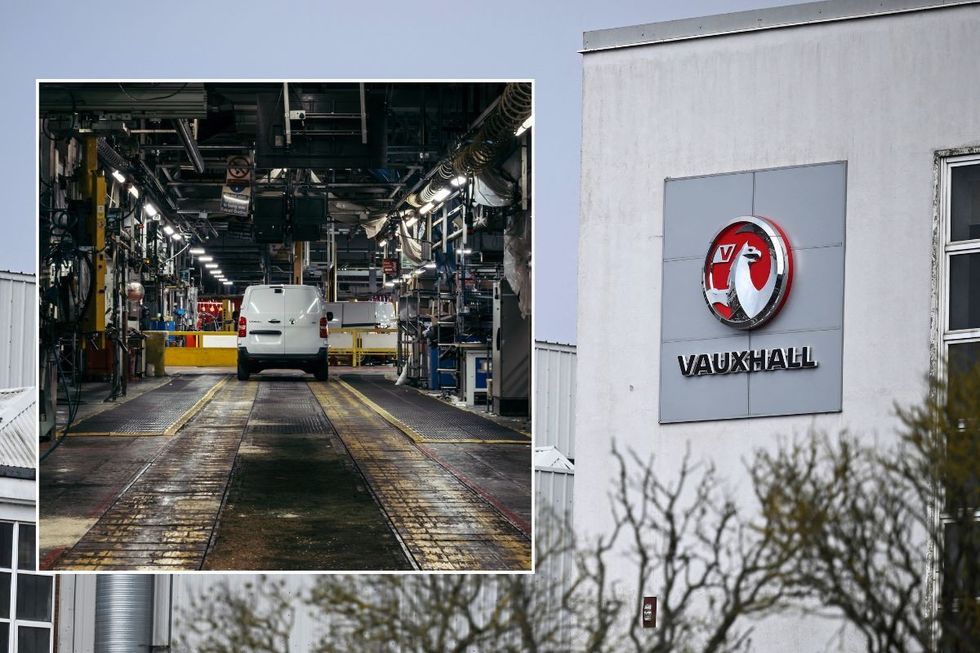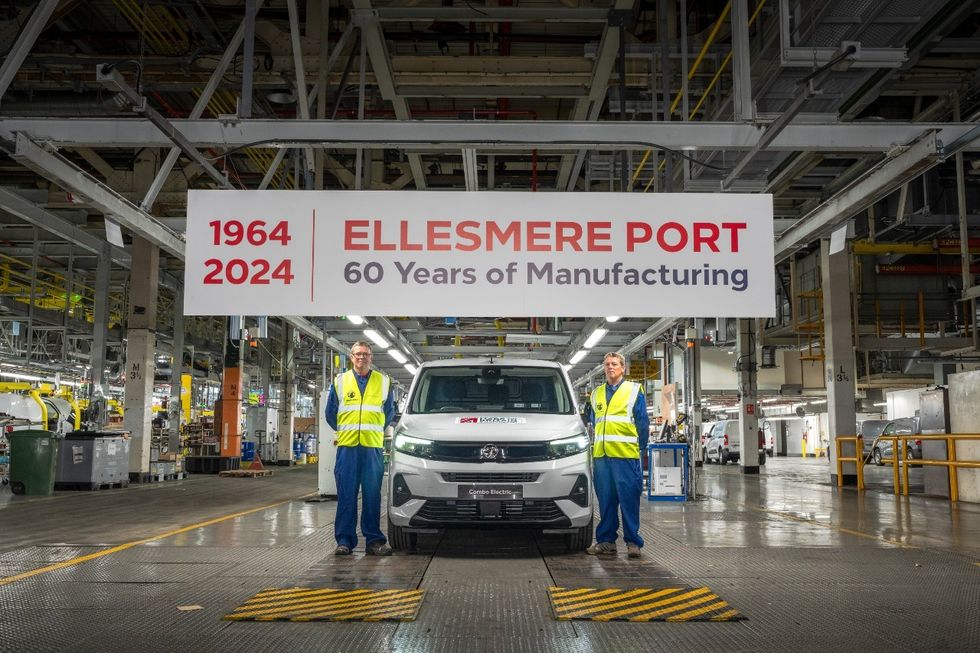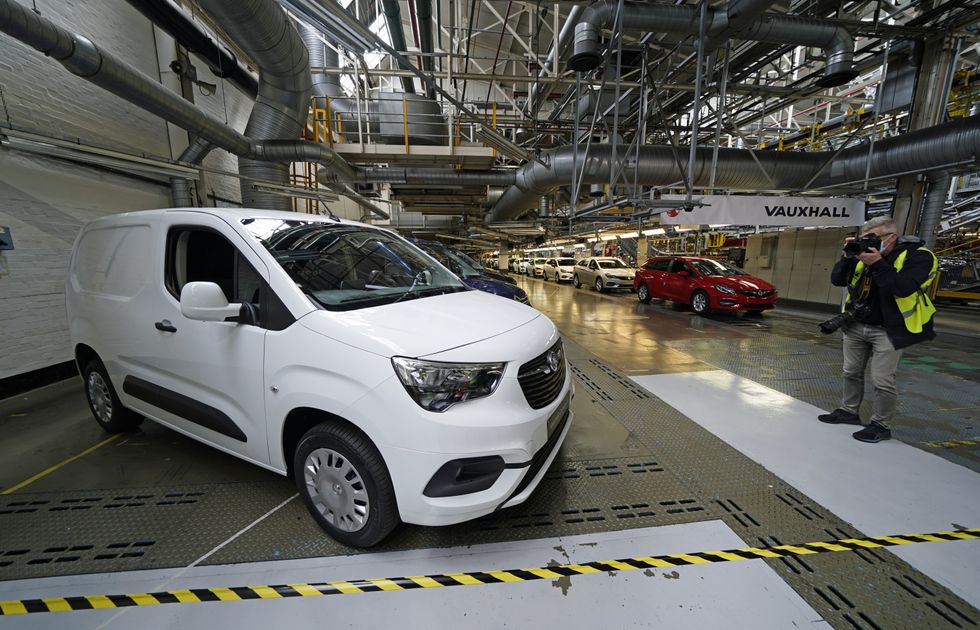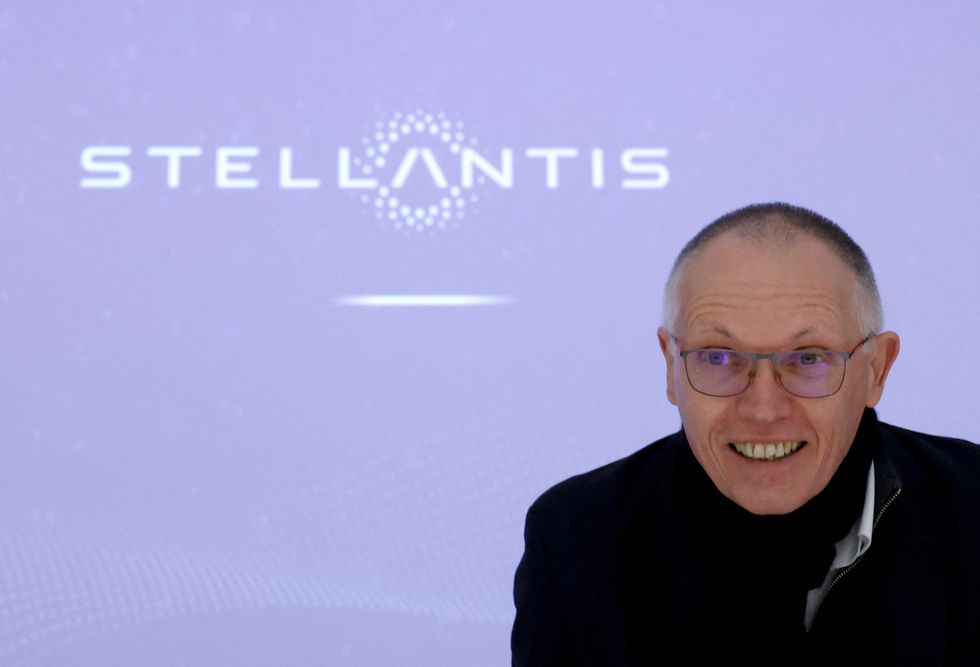Felix Reeves
Guest Reporter
Vauxhall's historic Luton factory has closed its doors after 120 years of production, with the final Vivaro van rolling off the assembly line on Friday.
The closure marks the end of more than a century of vehicle manufacturing at the Bedfordshire site, with the last-built Vivaro being procuced at 12.18pm on Friday, March 28.
Parent company Stellantis confirmed production ceased last week as part of its plan to consolidate UK van manufacturing operations.
The factory's closure was first announced in November 2024, putting 1,100 jobs at risk, with machinery and manufacturing expertise will now be transferred to Stellantis's Ellesmere Port plant in Cheshire.
Do you have a story you'd like to share? Get in touch by emailing [email protected]

The Luton site has been a cornerstone of British automotive manufacturing since its establishment, producing commercial vehicles that have been a familiar sight on UK roads for generations.
The closure represents a significant shift in Stellantis's UK manufacturing strategy. The manufacturer will now invest £50million in its Ellesmere Port site as part of the consolidation plan.
A spokesperson for Stellantis said: "Production of the current medium van range ceased today [Friday, March 28] in Luton.
"There will now be a period of transforming and transferring machinery and process knowledge to Ellesmere Port."

This move puts 1,100 jobs at risk, with only a few hundred roles guaranteed to be transferred to the Cheshire facility.
The spokesperson added: "Production of the group’s medium all-electric LCV (light commercial vehicles) range (eK0) in Ellesmere Port will commence in Q4 2026.
"Our employees always remain our priority, and we continue to act responsibly towards our colleagues in Luton.
"We continue with direct consultation meetings, relocation support for those who wish to transition to Ellesmere Port and onsite support activities, such as job fairs, CV writing, retraining support and wellness sessions."

Former Stellantis chief Carlos Tavares announced the closure just months after threatening shutdowns during disputes with the UK government.
The Unite union called for the decision to be reversed following Tavares's resignation, describing it as "one final example of Tavares's failed strategy".
The union argued that major decisions should be halted until a new CEO is appointed, expected in the first half of 2025. Stellantis, however, committed to continuing with previously announced projects under interim leadership.
The closure decision was made within the context of the UK's "stringent" zero-emission vehicle mandate, according to Stellantis.

This regulation requires that at least 22 per cent of new cars and 10 per cent of new vans sold by each manufacturer in the UK in 2024 must be zero-emission vehicles.
Tavares had previously stated that the mandate was "hurting significantly our business model" by forcing manufacturers to sell more electric vehicles without consumer incentives.
Luton Council stated it was "extremely disappointed and angry" at Stellantis's decision to close the Luton plant, despite condemnation from the Government, the council and locals.
Councillor Hazel Simmons MBE, Leader of Luton Council, said: "This is heartbreaking news and a devastating blow to Luton and the livelihood of the workers. Vauxhall has been an integral part of Luton's heritage for decades.
"We did what we could to try and stop this closure going ahead and I feel angry that this decision will massively impact the lives of so many people."
Find Out More...
The closure marks the end of more than a century of vehicle manufacturing at the Bedfordshire site, with the last-built Vivaro being procuced at 12.18pm on Friday, March 28.
Parent company Stellantis confirmed production ceased last week as part of its plan to consolidate UK van manufacturing operations.
The factory's closure was first announced in November 2024, putting 1,100 jobs at risk, with machinery and manufacturing expertise will now be transferred to Stellantis's Ellesmere Port plant in Cheshire.
Do you have a story you'd like to share? Get in touch by emailing [email protected]

The Luton site has been a cornerstone of British automotive manufacturing since its establishment, producing commercial vehicles that have been a familiar sight on UK roads for generations.
The closure represents a significant shift in Stellantis's UK manufacturing strategy. The manufacturer will now invest £50million in its Ellesmere Port site as part of the consolidation plan.
A spokesperson for Stellantis said: "Production of the current medium van range ceased today [Friday, March 28] in Luton.
"There will now be a period of transforming and transferring machinery and process knowledge to Ellesmere Port."

This move puts 1,100 jobs at risk, with only a few hundred roles guaranteed to be transferred to the Cheshire facility.
The spokesperson added: "Production of the group’s medium all-electric LCV (light commercial vehicles) range (eK0) in Ellesmere Port will commence in Q4 2026.
"Our employees always remain our priority, and we continue to act responsibly towards our colleagues in Luton.
"We continue with direct consultation meetings, relocation support for those who wish to transition to Ellesmere Port and onsite support activities, such as job fairs, CV writing, retraining support and wellness sessions."

Former Stellantis chief Carlos Tavares announced the closure just months after threatening shutdowns during disputes with the UK government.
The Unite union called for the decision to be reversed following Tavares's resignation, describing it as "one final example of Tavares's failed strategy".
The union argued that major decisions should be halted until a new CEO is appointed, expected in the first half of 2025. Stellantis, however, committed to continuing with previously announced projects under interim leadership.
The closure decision was made within the context of the UK's "stringent" zero-emission vehicle mandate, according to Stellantis.

This regulation requires that at least 22 per cent of new cars and 10 per cent of new vans sold by each manufacturer in the UK in 2024 must be zero-emission vehicles.
Tavares had previously stated that the mandate was "hurting significantly our business model" by forcing manufacturers to sell more electric vehicles without consumer incentives.
Luton Council stated it was "extremely disappointed and angry" at Stellantis's decision to close the Luton plant, despite condemnation from the Government, the council and locals.
Councillor Hazel Simmons MBE, Leader of Luton Council, said: "This is heartbreaking news and a devastating blow to Luton and the livelihood of the workers. Vauxhall has been an integral part of Luton's heritage for decades.
"We did what we could to try and stop this closure going ahead and I feel angry that this decision will massively impact the lives of so many people."
Find Out More...
